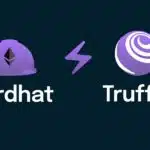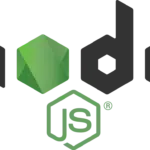Laravel1 is an open-source PHP2 framework used for developing fast and secure web applications. Since its release in 2011, Laravel has grown to become one of the most popular PHP frameworks due to its expressive syntax and ease of use. In this article, we’ll take a quick look at some of Laravel’s main features and an example of Laravel code.
Blade Templating
Laravel comes with Blade3, a simple but powerful templating engine that allows you to build dynamic PHP web pages with clean, readable code. Blade provides shortcuts for common PHP4 tasks like outputting variables, control structures, loops etc:
@extends('layouts.app')
@section('content')
<h1>{{ $title }}</h1>
@if (count($records) === 1)
I have one record!
@elseif (count($records) > 1)
I have multiple records!
@endif
@endsectionThe @section5 and @extends6 directives allow you to build layouts and partials for a clean separation of concerns in your web pages.
Built-in Authentication
Laravel makes implementing user authentication very simple with built-in services for session management and authentication. You can scaffold a registration and login system with minimal code:
// Register a user
Route::post('/register', function () {
$user = User::create([
'name' => request('name'),
'email' => request('email'),
'password' => Hash::make(request('password'))
]);
//...
});
// Log a user in
Route::post('/login', function () {
if (Auth::attempt(['email' => request('email'), 'password' => request('password')])) {
// User is authenticated
}
});Laravel handles hashing passwords, validating credentials, protecting routes and other authentication tasks out of the box.
Migrations for Schema Building
Laravel includes a schema builder and database migration system for easily building and altering MySQL7 or PostgreSQL8 databases:
Schema::create('users', function (Blueprint $table) {
$table->bigIncrements('id');
$table->string('name');
$table->string('email')->unique();
$table->timestamps();
});Migrations allow you to share and edit the application schema across team members using simple, readable classes.
Eloquent ORM
Laravel includes Eloquent9, a simple yet powerful Object-Relational Mapper (ORM) for working with database tables through PHP objects. Eloquent makes basic CRUD operations concise:
// Fetch a blog post by ID
$post = App\Models\Post::find(1);
// Create a new post
$post = new App\Models\Post;
$post->title = 'New Post';
$post->save();
// Update a post
$post = App\Models\Post::find(1);
$post->title = 'Updated Title';
$post->save();The Eloquent ORM provides a robust set of tools for working with relational data, including relationships, eager loading, serialization, and more.
Artisan CLI
Artisan10 is the built-in command line interface included with Laravel for running commands and automating tasks. For example:
// Create a new migration file
php artisan make:migration create_posts_table
// Run database migrations
php artisan migrate
// Publish assets
php artisan vendor:publishArtisan contains helpful commands for migrations, queue workers, caching, and many other tasks. It can be easily extended with custom commands as well.
Built-in Development Server
Laravel comes with a fast Symfony11-based development web server for rapid testing and iteration:
php artisan serve
// Development server running on http://localhost:8000The Artisan serve command spins up a built-in server with hot reloading in just seconds, perfect for frequent changes during project development.
Laravel Horizon
Horizon12 is an optional tool included with Laravel for managing queues and jobs across multiple servers. It includes a clean dashboard interface for monitoring jobs and throughput.
Some key features of Horizon include queue balancing, job trimming, monitoring throughput, tagging job types, and more – all aimed at improving speed and reliability of queue job processing.
In summary, Laravel is a feature-rich and mature framework that makes many common web development tasks straightforward. With its expressive syntax, robust tooling and wide ecosystem, Laravel is a great choice for building modern PHP applications.
Conclusion
At Infuy, we’re always excited to explore new technologies and frameworks like Laravel. Our team of experienced PHP developers is ready to help you bring your ideas to life. Whether you’re looking to develop a new application or need help with an existing project, we’re here to help.
We invite you to reach out to us at Infuy to discuss how we can assist you with your PHP development needs. We believe in the power of collaboration and are excited to see what we can create together with Laravel.
So why wait? Let’s start building something amazing together. Contact us today!
- Laravel: The PHP Framework for Web Artisans [↩]
- PHP: A popular general-purpose scripting language [↩]
- Blade: The simple, yet powerful templating engine included with Laravel [↩]
- Infuy: PHP and Blockchain: The Future of Web Development? [↩]
- Laravel Blade’s @section Directive [↩]
- Laravel Blade’s @extend Directive [↩]
- MySQL: The world’s most popular open source database [↩]
- PostgreSQL: The World’s Most Advanced Open Source Relational Database [↩]
- Eloquent ORM: Object-relational mapper included with Laravel [↩]
- Artisan: Command line interface included with Laravel [↩]
- Symfony is a set of PHP Components, a Web Application framework, a Philosophy, and a Community — all working together in harmony. [↩]
- Laravel Horizon: A beautiful dashboard and code-driven configuration for your Laravel powered Redis queues [↩]
Posted in PHP, Software Development





